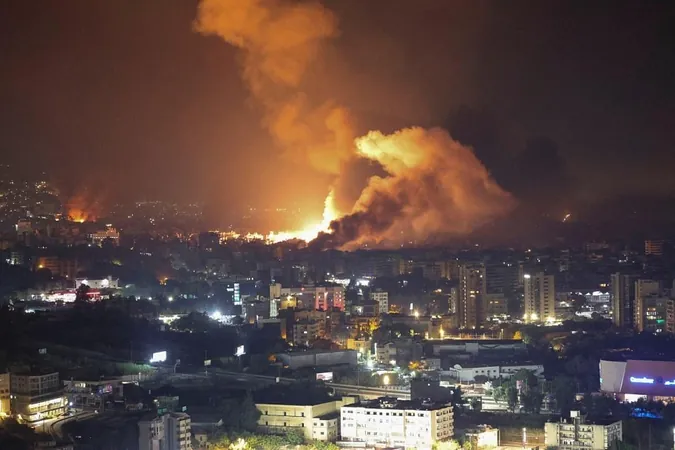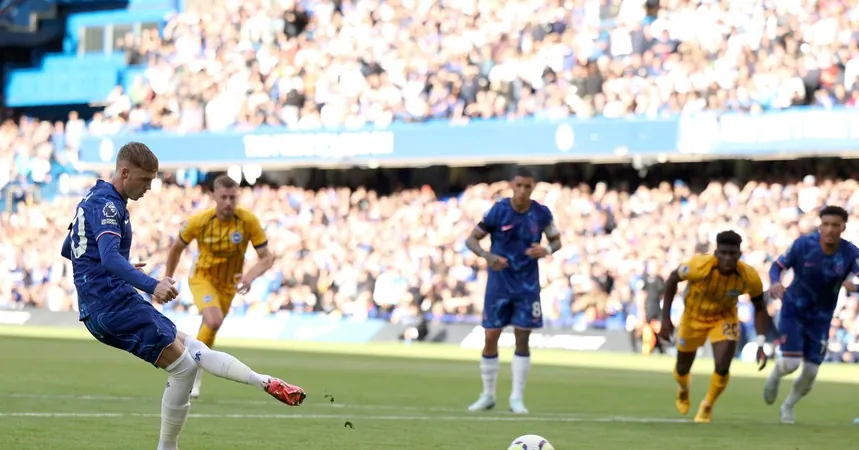
Beirut Erupts in Chaos: Israel Escalates Air Strikes on Hezbollah Amid Fears of Wider Conflict
2024-09-28
BEIRUT/JERUSALEM –
A severe escalation of violence hit Beirut as Israeli airstrikes ravaged the city’s southern suburbs early on September 28. This follows a massive attack on Hezbollah's command center, reportedly targeting the group's leader, Hassan Nasrallah, though his exact whereabouts remain unconfirmed.
Eyewitnesses reported over 20 airstrikes before dawn, sending thousands of Lebanese fleeing from their homes to seek refuge in public squares and along the coastline. Reports of major strikes on September 27 had already sent shockwaves through the city, marking the most intense assault on Hezbollah positions in nearly a year.
While Israel has not explicitly stated it was aiming for Nasrallah, a high-ranking Israeli official indicated that senior commanders of Hezbollah were indeed being targeted. "Sometimes they hide the fact when we succeed," the official commented, leaving the fate of Nasrallah shrouded in uncertainty. However, a source close to Hezbollah maintains that Nasrallah remains safe, contradicting fears of his possible death.
Israeli Prime Minister Benjamin Netanyahu defended the ongoing strikes at the United Nations General Assembly the day prior, insisting that Israel is justified in its efforts to neutralize what it perceives as an existential threat from Hezbollah. His statements came amid a wave of tumult, with some delegations walking out in protest as he spoke.
The assault on Beirut has resulted in at least six deaths and left 91 individuals wounded, making this the fourth significant attack on areas controlled by Hezbollah in just one week. Local resident Alaa al-Din Saeed described the panic that ensued as families grabbed essentials and fled: "We found out on the television; there was a huge commotion in the neighborhood," he recounted.
The violence has displaced around 100,000 people, compounding an already dire humanitarian crisis in Lebanon, where more than 200,000 individuals have been uprooted by ongoing conflicts. The Israeli government cited the goal of returning about 70,000 evacuees back to safety as part of its military strategy.
In retaliation, Hezbollah has launched hundreds of rockets towards Israeli targets, including Tel Aviv and the northern city of Safed, where minor injuries were reported. Israel’s air defense systems have largely mitigated the impact of these strikes, but the escalation of hostilities has raised alarms that the conflict might spiral beyond control, potentially drawing in regional powers like Iran or global players like the United States.
Iran's response to the attacks has been swift, decrying them as a crossing of “red lines” and accuses Israel of utilizing enhanced firepower against Lebanon. U.S. Secretary of Defense Lloyd Austin announced that the United States had not been informed prior to the strike, highlighting a potential rift in communication amid rising tensions.
Internationally, there has been a clamor for de-escalation. France, alongside the United States, is advocating for a 21-day ceasefire, calling for an immediate end to the hostilities. U.S. Secretary of State Antony Blinken echoed the sentiment at a press conference, underscoring the prioritization of diplomatic solutions over further conflict.
This latest chapter in a prolonged and bloody saga between Israel and Hezbollah began amidst heightened tensions following the Hamas-led attack on Israel on October 7 last year, a move that fundamentally reshaped the regional security landscape. As the situation in Beirut continues to deteriorate, the world watches closely, bracing for the potential fallout of an ever-growing conflict.




 Brasil (PT)
Brasil (PT)
 Canada (EN)
Canada (EN)
 Chile (ES)
Chile (ES)
 España (ES)
España (ES)
 France (FR)
France (FR)
 Hong Kong (EN)
Hong Kong (EN)
 Italia (IT)
Italia (IT)
 日本 (JA)
日本 (JA)
 Magyarország (HU)
Magyarország (HU)
 Norge (NO)
Norge (NO)
 Polska (PL)
Polska (PL)
 Schweiz (DE)
Schweiz (DE)
 Singapore (EN)
Singapore (EN)
 Sverige (SV)
Sverige (SV)
 Suomi (FI)
Suomi (FI)
 Türkiye (TR)
Türkiye (TR)